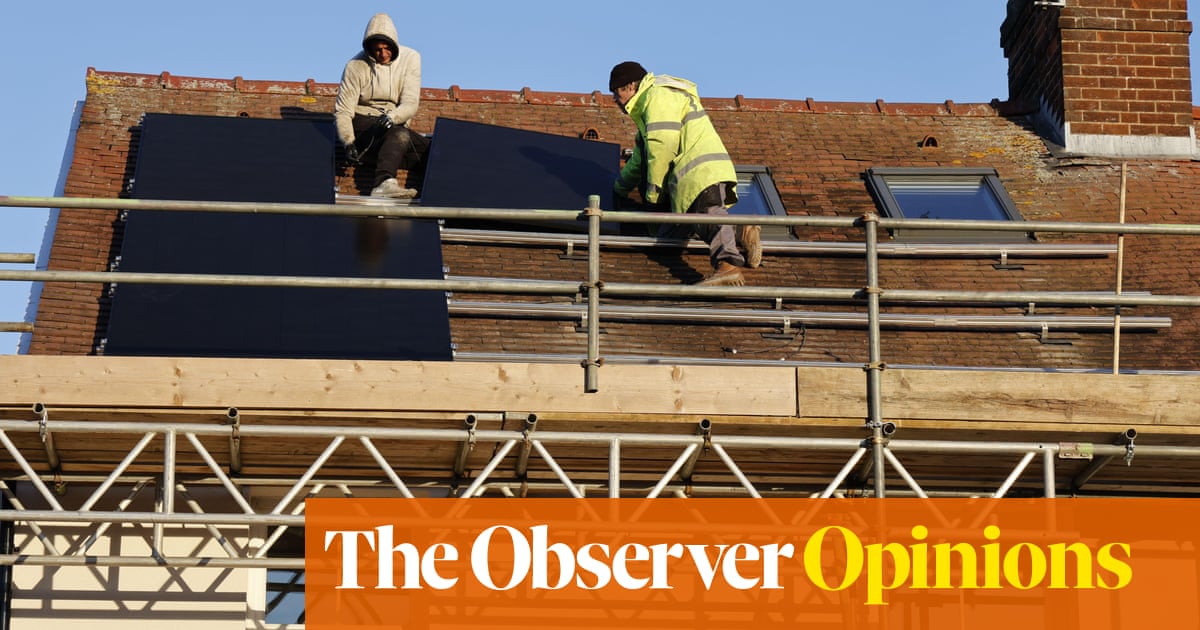In the energetic pursuit of net zero, billions of pounds could be squandered needlessly. That’s the lesson from countries as diverse as Italy, the US and UK, where the rush to subsidise green projects suggests vast sums are at risk. Worse, they could be lining the pockets of multinational businesses and City financiers.
In the UK, 14 years of austerity has left the public sector struggling to make coherent, strategic decisions. When a decision is finally made, it is a panic measure that quickly unravels. The fallout could be that voters become disenchanted with green tech, especially if the dash for net zero leads to higher taxes and higher borrowing while early adopters unwittingly pay for costly mistakes.
Some economists argue the UK can double its investment plans to reach net zero. Even should the financial markets agree and the UK avoids a Truss-like panic, this proposal doesn’t look at whether the public sector’s can carry through changes at breakneck speed without making costly mistakes.
In the run-up to the election, some on the left and in green groups will defend any waste and fraud as collateral damage. On the right, the waste and fraud will be used as an excuse to abandon all moves to net zero. Neither approach is right.
The focus needs to be on the boring, nitty-gritty issues of coordination and planning.
Hundreds of UK councils have set 2030 as a target for more than halving emissions or even going completely net zero, mostly without the powers to achieve it.
As is common across the private sector, they rely on consultants to advise on ways to achieve the target as the time left to decarbonise runs short.
Labour was in a rush before Keir Starmer U-turned on his headline green pledges and scaled back the party’s investment programme, including a plan to insulate 19m homes to a more manageable 5m.
Would extra money have allowed Labour to achieve that original target? The Tories had money in place, but when the Green Homes Grant was cancelled, homeowners arguably had a lucky escape from a half-baked scheme.
Contractors were expected to provide an army of inspectors within a few months of the scheme getting the green light. Even now, councils are struggling to train inspectors, and the construction industry is rife with rumours of building firms putting pressure on them “to certify beyond their level of competence”.
If Labour wants to revive this programme or start something similar, it needs a strategy that allows time for proper training. Anything else risks a backlash that could make Starmer a one-term prime minister.
Many EU countries are handling things just as badly, it appears. Italy’s Superbonus 110% – a scheme similar to the UK’s Green Homes Grant – has subsidised the same sectors as the EU’s €750bn Covid recovery fund directly supported.
According to the Italian government, the total amount committed to house renovations under various schemes since 2020 reached a colossal €219bn by the end of February 2024 – equivalent to 10.5% of Italy’s gross domestic product in 2023.
after newsletter promotion
Lorenzo Codogno, a former chief economist at Rome’s finance ministry who has since founded consulting business LC Macro Advisors, says Italy’s GDP growth has improved, but falls well short of what would be suggested by this massive spending spree.
He says construction costs spiralled as building firms, unable to meet demand, jacked up prices, sometimes fraudulently, while green funds overlapped with existing schemes and crowded out other types of activity.
In the US, Joe Biden’s green subsidies are coming under similar scrutiny, with fears of potential waste and fraud. The watchdog that oversees the US Environmental Protection Agency warned last year that boosting the EPA’s budget by about $100bn through new legislation would see some of it frittered on hastily-put-together projects or siphoned off illegally.
The need for speed is understandable when the climate emergency is flashing red. And it is clear that (rich) countries which cause most emissions need to ramp up their efforts to cut carbon.
The US Treasury secretary, Janet Yellen, has shown with economic modelling that the Inflation Reduction Act, which devotes $369bn in subsidies through grants, loans and tax credits to public and private entities, has benefits that “far exceed the costs”.
Yet those who maintain that projects should be ready in months, that new skills can be acquired within weeks and that decisions need only a few days’ consideration risk inevitable voter resistance when the tales of money being squandered emerge, as they will.

